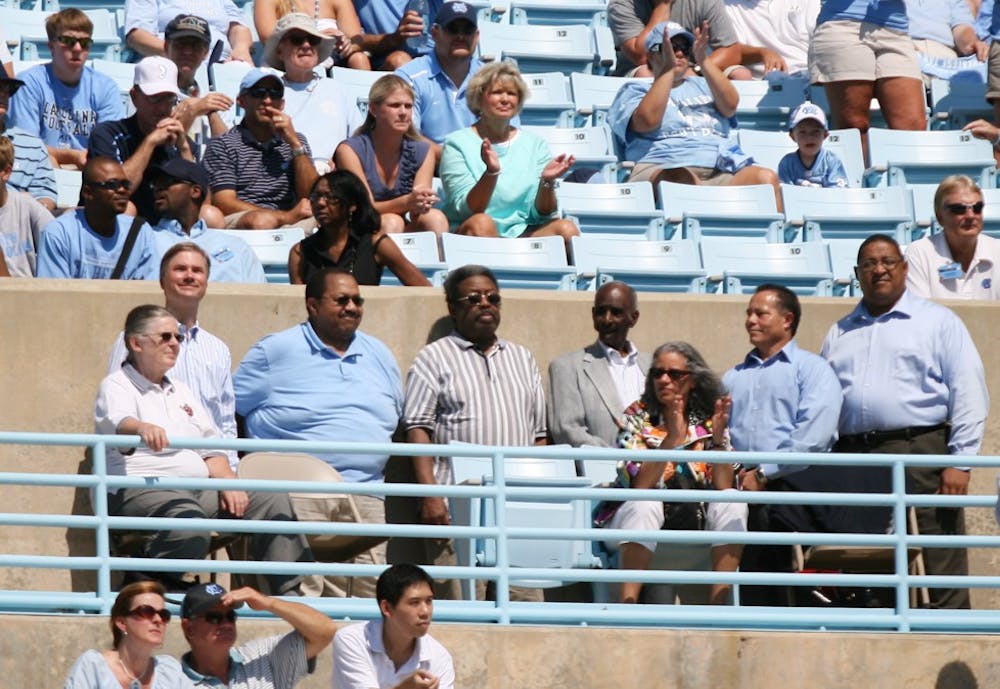Freshman Kori White thought diversity at the University was lacking, and she considered leaving.
But after attending a discussion Friday with the first black undergraduates to attend UNC, White said she decided to stay.
“The entire lecture was inspiring,” White said. “If you missed it, you missed a once-in-a-lifetime experience.”
White was one of more than 100 people to celebrate the 55th anniversary of John Lewis Brandon and Ralph and LeRoy Frasier’s enrollment at UNC on Friday at the Sonja Haynes Stone Center.
After the lecture, some retired to a reception where students eagerly awaited the chance to speak with them one-on-one.
The next day, students cheered as the three were honored at Kenan Stadium before the kickoff of UNC’s football game against Georgia Tech.
The three enrolled in the University in 1955, one year after the landmark Brown v. Board of Education decision declared racial segregation in schools to be unconstitutional.
Ralph Frasier said he was a student at Hillside High School in Durham in 1955, when representatives from the Campus Y visited to recruit eligible black students to apply for admission to UNC.
He said that according to the Campus Y, if the school could find African-American students interested in applying to the University, those students would receive a warm reception.



